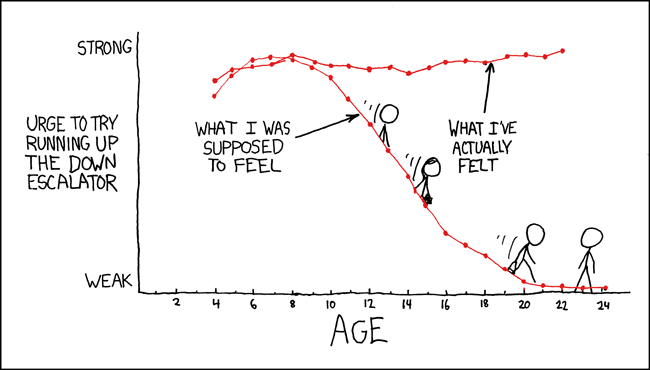This discussion is now closed.
Check out other Related discussions
- My boyfriend shoved me while drunk, what should I do
- help with resultant vertical velocity question please
- I feel broken as my relationship is ending
- Unite repairs?
- Antifa activist murdered in NYC
- Kallisto's Saturday Question: Superstition
- How do i tell him to stop?
- Can cctv find out my name and address on a train?
- Got into a fist fight at the library. Potentially in trouble
- How on earth do I respond to my ex here???
- If you have never broken a bone does it mean that you have never been daring?
- i cant physically make myself go to college due to my severe social anxiety
- ruined my relationship with my parents?
- I cant tell if I am friend zoned or if she just needs time.
- Break in relationship
- Why am I treated so differently?
- What is the most exciting thing you have done through school?
- Is this why my crush is behaving very cold with me
- Girls laughing at me
- Did he just do it too hard and his ego stopped him from apologising because he was ac
Have you ever walked up a broken escalator?
i was at the mall this morning sitting by this escalator eating a delicious cake, the escalator wasn't working but you could still walk up and i noticed that people lost their balance and almost fell as they were getting on it. this one kid who ran up it actually fell.  when i finished my cake i tried it myself and had this funny sensation. i used it on the way down as well later and i guess i'm so used to it moving it still felt weird.
when i finished my cake i tried it myself and had this funny sensation. i used it on the way down as well later and i guess i'm so used to it moving it still felt weird.
 when i finished my cake i tried it myself and had this funny sensation. i used it on the way down as well later and i guess i'm so used to it moving it still felt weird.
when i finished my cake i tried it myself and had this funny sensation. i used it on the way down as well later and i guess i'm so used to it moving it still felt weird.Scroll to see replies
Well, I run up escalators going in the opposite direction all the time.
Walking up a static escalator is disconcerting because:
a) The steps are both higher and narrower than you'd expect from a regular staircase.
b) The steps have sharp teeth-like bits sticking out from the edge and
c) The steps aren't perfectly vertical, they tend to slant outwards a bit.
Walking up a static escalator is disconcerting because:
a) The steps are both higher and narrower than you'd expect from a regular staircase.
b) The steps have sharp teeth-like bits sticking out from the edge and
c) The steps aren't perfectly vertical, they tend to slant outwards a bit.
It just feels so metal. You would expect the steps to be softer (like normal stairs).
If you do travel on a moving escalator, you don't take that many steps and therefore don't notice it as much as if you have to climb 25.
If you do travel on a moving escalator, you don't take that many steps and therefore don't notice it as much as if you have to climb 25.
Yes I have and never had any troubles. Neither did anyone else at the time.
the escalator in lime street are always off at 9.15 when I go home from work
SunderX
Well, I run up escalators going in the opposite direction all the time.
Walking up a static escalator is disconcerting because:
a) The steps are both higher and narrower than you'd expect from a regular staircase.
b) The steps have sharp teeth-like bits sticking out from the edge and
c) The steps aren't perfectly vertical, they tend to slant outwards a bit.
Walking up a static escalator is disconcerting because:
a) The steps are both higher and narrower than you'd expect from a regular staircase.
b) The steps have sharp teeth-like bits sticking out from the edge and
c) The steps aren't perfectly vertical, they tend to slant outwards a bit.
d) You can't tell whether you're going up the right away - if it starts up all of a sudden and you happen to be going up the wrong way.. I'd imagine I'd be in for one heck of a fall

We investigated the physiological basis of the 'broken escalator phenomenon', namely the sensation that when walking onto an escalator which is stationary one experiences an odd sensation of imbalance, despite full awareness that the escalator is not going to move. The experimental moving surface was provided by a linear motor-powered sled, moving at 1.2 m/s. Sled velocity, trunk position, trunk angular velocity, EMG of the ankle flexors-extensors and foot-contact signals were recorded in 14 normal subjects. The experiments involved, initially, walking onto the stationary sled (condition Before). Then, subjects walked 20 times onto the moving sled (condition Moving), and it was noted that they increased their walking velocity from a baseline of 0.60 m/s to 0.90 m/s. After the moving trials, subjects were unequivocally warned that the platform would no longer move and asked to walk onto the stationary sled again (condition After). It was found that, despite this warning, subjects walked onto the stationary platform inappropriately fast (0.71 m/s), experienced a large overshoot of the trunk and displayed increased leg electromyographic (EMG) activity. Subjects were surprised by their own behaviour and subjectively reported that the 'broken escalator phenomenon', as experienced in urban life, felt similar to the experiment. By the second trial, most movement parameters had returned to baseline values. The findings represent a motor aftereffect of walking onto a moving platform that occurs despite full knowledge of the changing context. As such, it demonstrates dissociation between the declarative and procedural systems in the CNS. Since gait velocity was raised before foot-sled contact, the findings are at least partly explained by open-loop, predictive behaviour. A cautious strategy of limb stiffness was not responsible for the aftereffect, as revealed by no increase in muscle cocontraction. The observed aftereffect is unlike others previously reported in the literature, which occur only after prolonged continuous exposure to a sensory mismatch, large numbers of learning trials or unpredictable catch trials. The relative ease with which the aftereffect was induced suggests that locomotor adaptation may be more impervious to cognitive control than other types of motor learning.
sauce http://www.ncbi.nlm.nih.gov/pubmed/12802549
sauce http://www.ncbi.nlm.nih.gov/pubmed/12802549
SunderX
Well, I run up escalators going in the opposite direction all the time.
I can run down escalators going up but I have never managed to run up an escalator going down.
Ha! I know exactly what everyone means. It is one of the most disconcerting feelings I know - I always feel that I walk down them faster than normal stairs because of the momentum you produce since each individual stair is higher than normal. Bit weird when you get to the bottom and you're almost at a run and people look at you funny. Haha!
The one going down into an M&S near me is always turned off, so seems normal to me.
relevant


- skyhigh
I can run down escalators going up but I have never managed to run up an escalator going down.
I've had several races involving running in both directions. It gets real hard after a few drinks!
Where I work we have the staff briefing upstairs on the Saturday before the shop opens so you have to climb up the escalator as it's not switched on yet and I've always noticed that the steps are alot further apart than on normal steps and it feels as though it should be moving.
walked down one in leeds once, never gone up one thats broken
I've walked up a frozen escalator before. Nope, no strange sensation whatsoever.
Related discussions
- My boyfriend shoved me while drunk, what should I do
- help with resultant vertical velocity question please
- I feel broken as my relationship is ending
- Unite repairs?
- Antifa activist murdered in NYC
- Kallisto's Saturday Question: Superstition
- How do i tell him to stop?
- Can cctv find out my name and address on a train?
- Got into a fist fight at the library. Potentially in trouble
- How on earth do I respond to my ex here???
- If you have never broken a bone does it mean that you have never been daring?
- i cant physically make myself go to college due to my severe social anxiety
- ruined my relationship with my parents?
- I cant tell if I am friend zoned or if she just needs time.
- Break in relationship
- Why am I treated so differently?
- What is the most exciting thing you have done through school?
- Is this why my crush is behaving very cold with me
- Girls laughing at me
- Did he just do it too hard and his ego stopped him from apologising because he was ac
Latest
Last reply 2 minutes ago
Official Loughborough University - Applicant Thread 2024Last reply 5 minutes ago
is it possible to go from a size 16 [L] to a size 12 [M] in five months?Last reply 6 minutes ago
How many days a week do you need to go to uni for foundation year?Posted 7 minutes ago
Sixth form for British citizen living aboardLast reply 7 minutes ago
Amazon Project management apprenticeship 2024Last reply 8 minutes ago
Official UCL Offer Holders Thread for 2024 entryLast reply 9 minutes ago
Medical doctor degree apprenticeship 2024Last reply 11 minutes ago
MPhil in Scientific Computing 2024 - University of CambridgeLast reply 14 minutes ago
Edexcel A Level Further Mathematics Paper 3C (9FM0 3C) - 7th June 2024 [Exam Chat]Posted 15 minutes ago
Student advice for choosing your firm and insurance universities wiselyLast reply 17 minutes ago
Can't see the younger Childs application to supportLast reply 19 minutes ago
Cancel my student finance and restart a new oneTrending
Last reply 5 days ago
TSR Goes Green: How important will the environment be in this year's election?Last reply 6 days ago
Why is the political left now censorious and authoritarian??Last reply 3 weeks ago
Is University of Birmingham prestigious and respected well enough in UK ?Trending
Last reply 5 days ago
TSR Goes Green: How important will the environment be in this year's election?Last reply 6 days ago
Why is the political left now censorious and authoritarian??Last reply 3 weeks ago
Is University of Birmingham prestigious and respected well enough in UK ?



